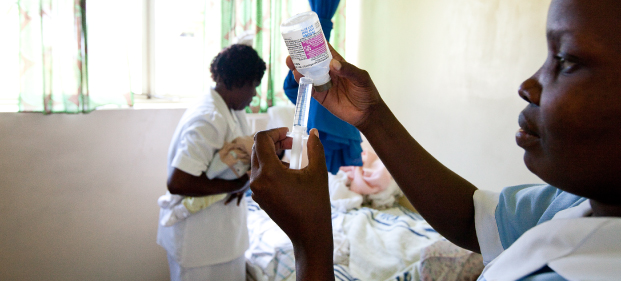Where We Work
See our interactive map


A new report published by IntraHealth International documents the achievements and challenges of four countries—the Dominican Republic, Kenya, Mali, and Uganda—in the two years since they made human resources for health (HRH) commitments at the 2013 Third Global Forum on HRH in Recife, Brazil.
Fifty-seven countries made health workforce-related commitments at the forum, which was sponsored by the Global Health Workforce Alliance and the World Health Organization. Such public pledges by national leaders can be galvanizing moments in global development. But how well do countries follow through? To help answer this question, the report looks at four countries in which IntraHealth has worked with local partners to advocate for and provide technical support to advance their commitments, primarily through US Agency for International Development-funded projects.
The case studies describe the context and political environment that enabled the health workforce commitments to be developed, the actions countries have taken to implement them, and the results to date. While each country has experienced individual challenges, an overarching theme among them all is the need for more consistent and comprehensive monitoring and evaluation of HRH goals.
Highlights of each country’s progress include the following:
“The experiences of [these countries] provide insights on how global accountability, such as commitments made to international stakeholders, can catalyze action and advance national health objectives,” IntraHealth president and CEO Pape Gaye notes in the foreword to the report. “The experiences described in the studies may inform other countries as they assess their own progress over the last two years and plan future strategies to reach universal health coverage and achieve the post-2015 Sustainable Development Goals.”
Read more: Human Resources for Health Country Commitments: Case Studies from the Dominican Republic, Kenya, Mali, and Uganda



